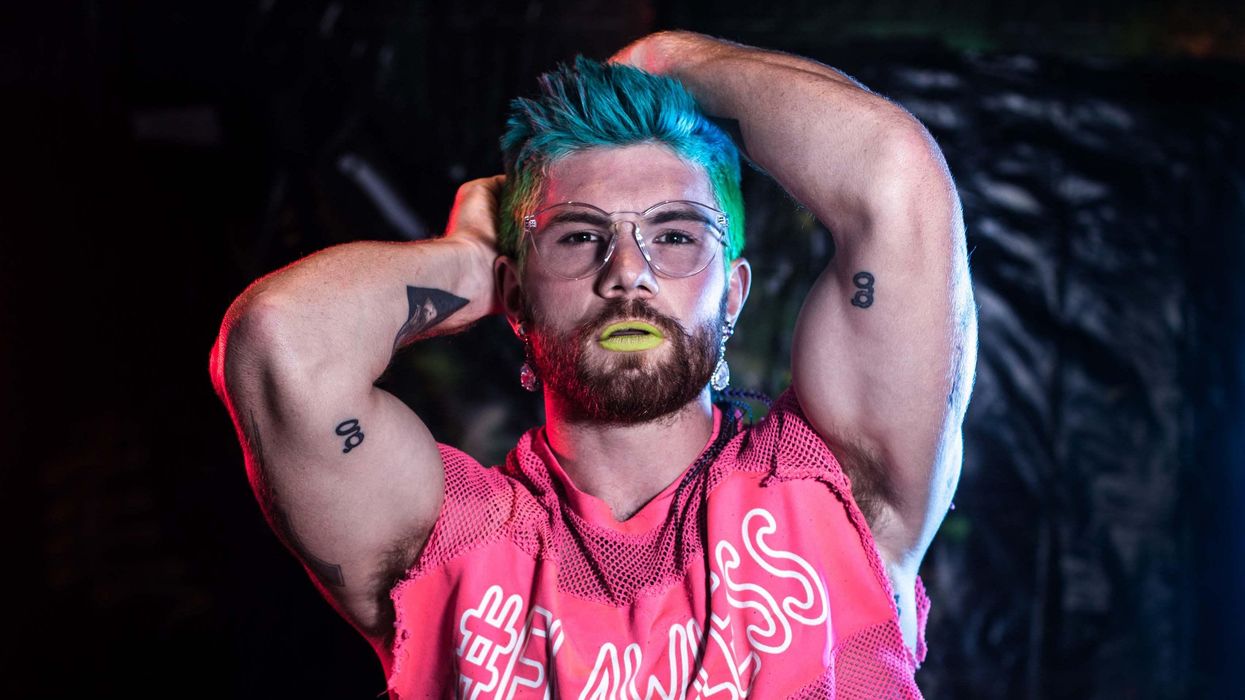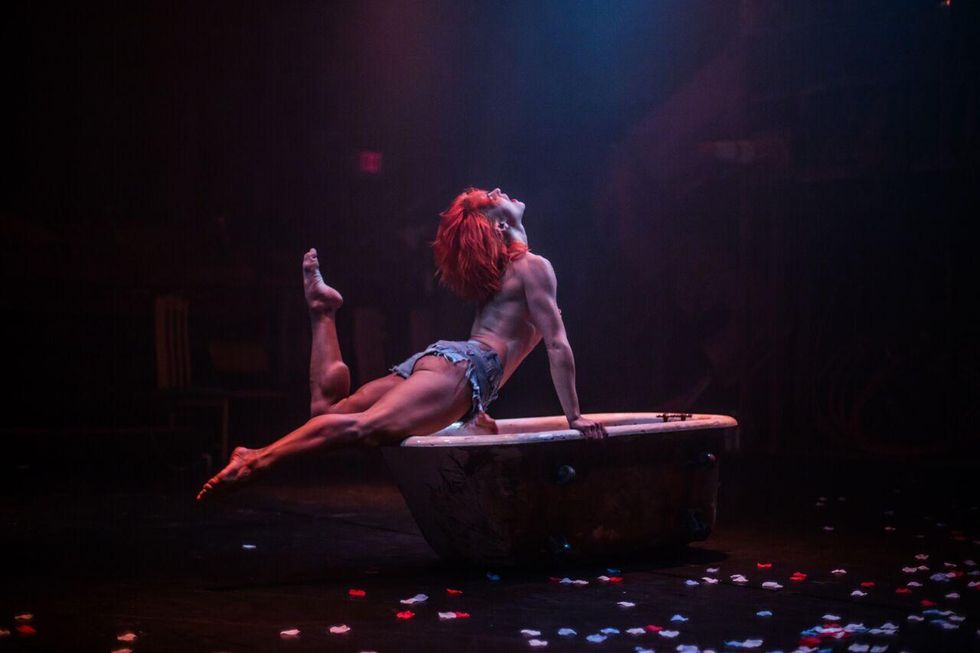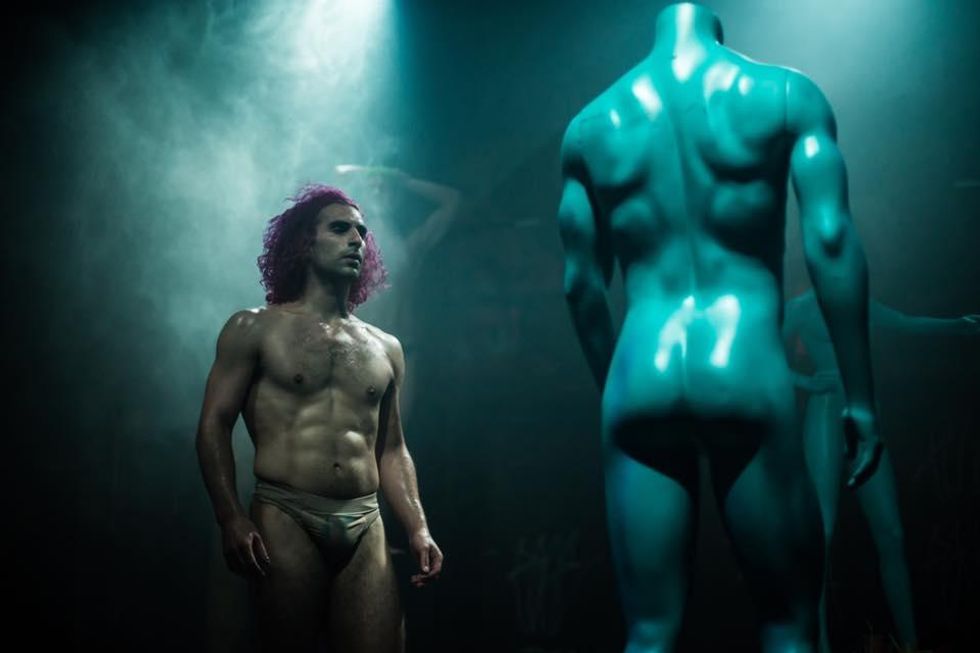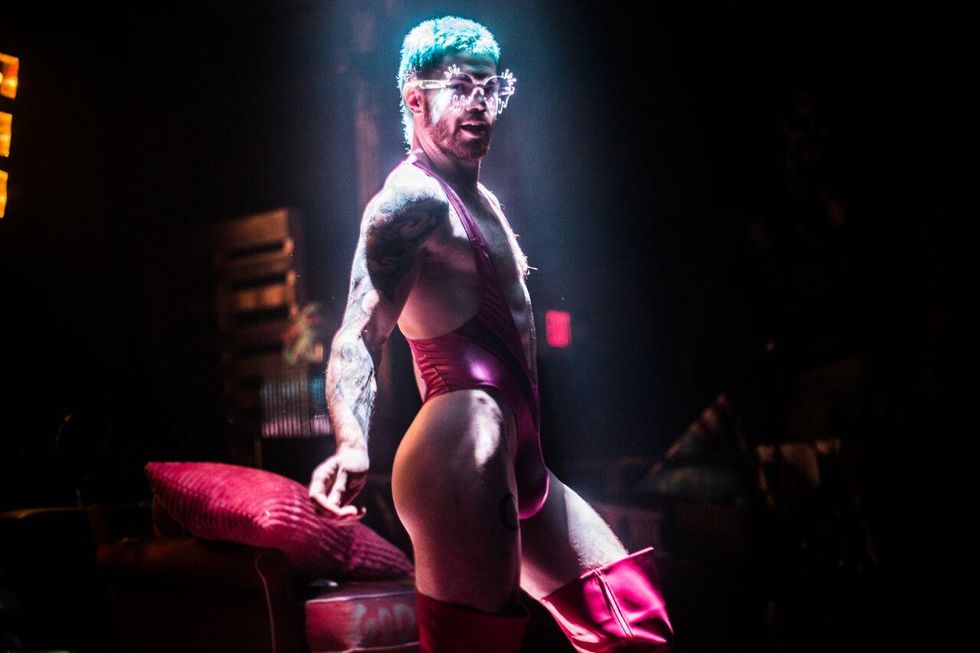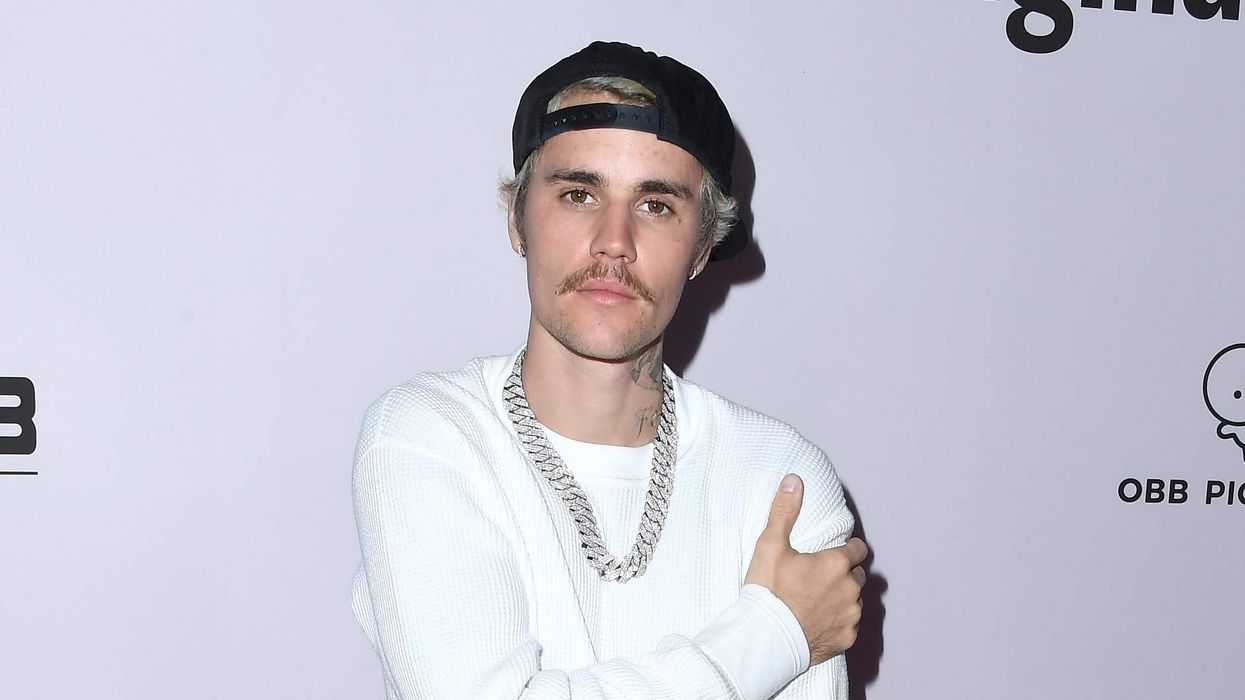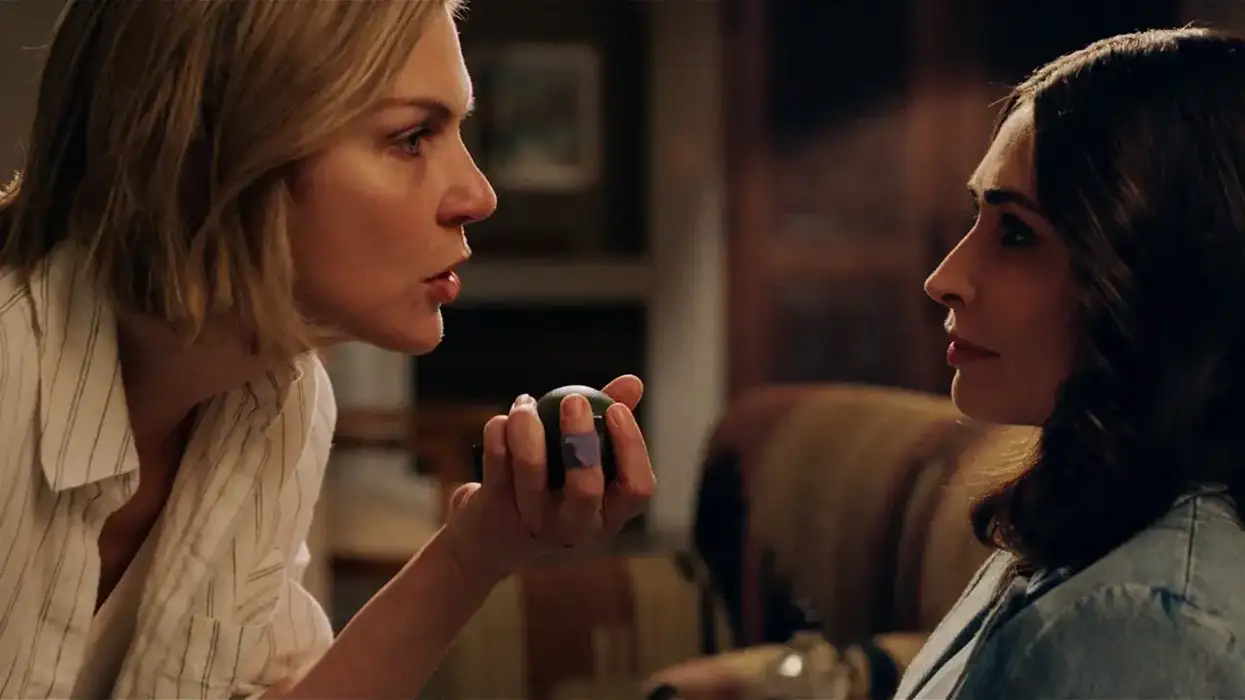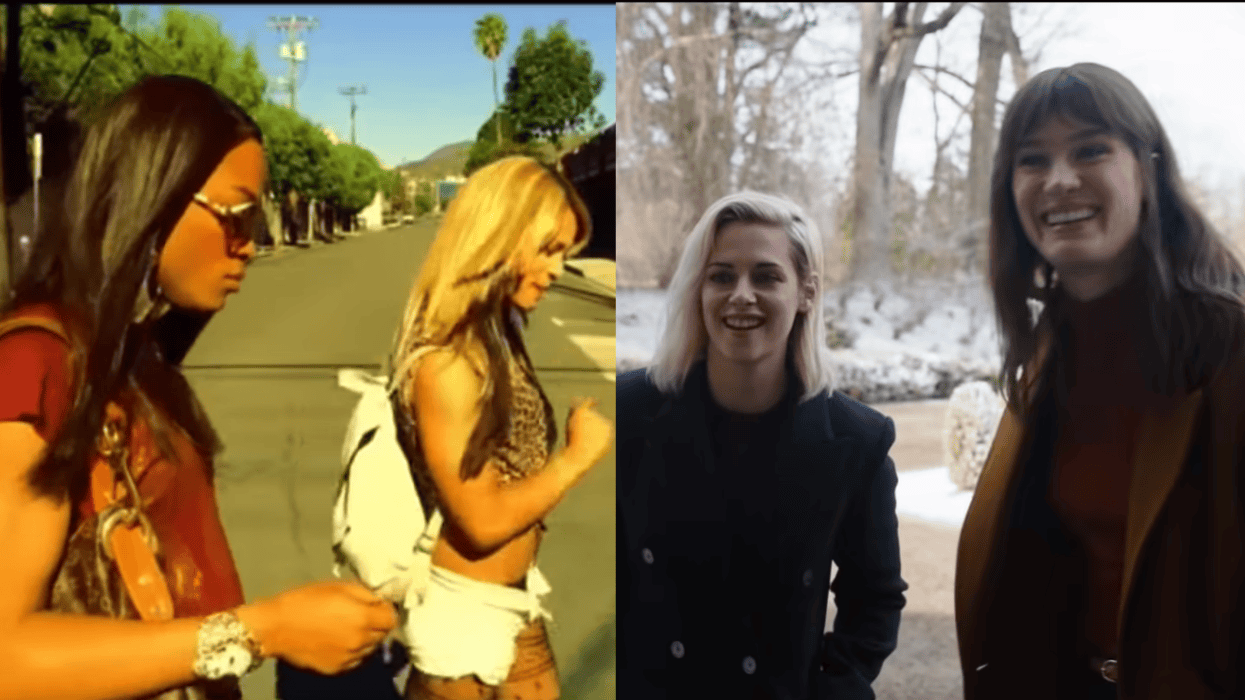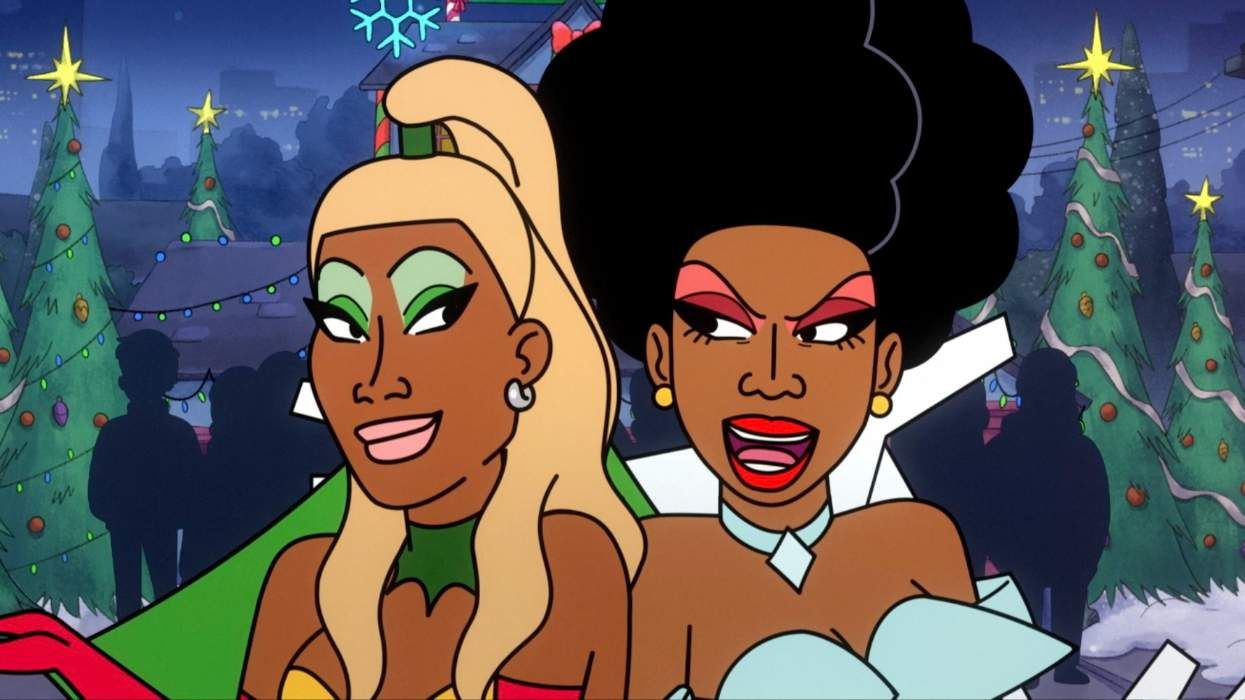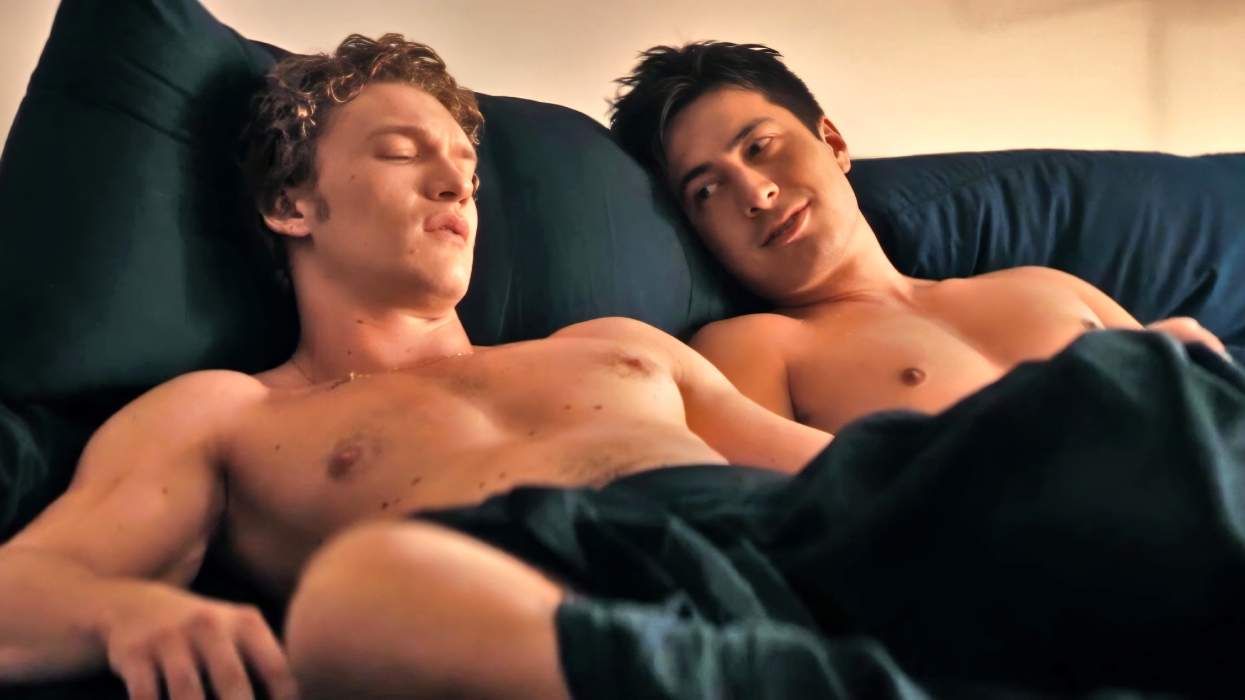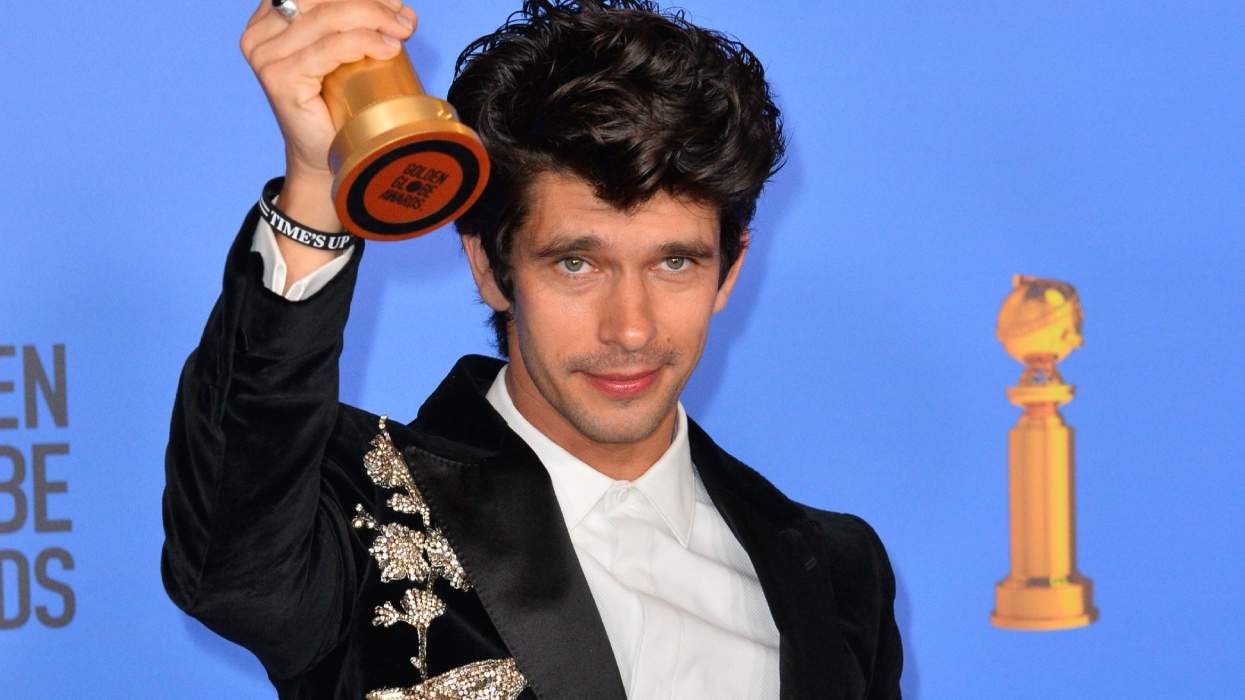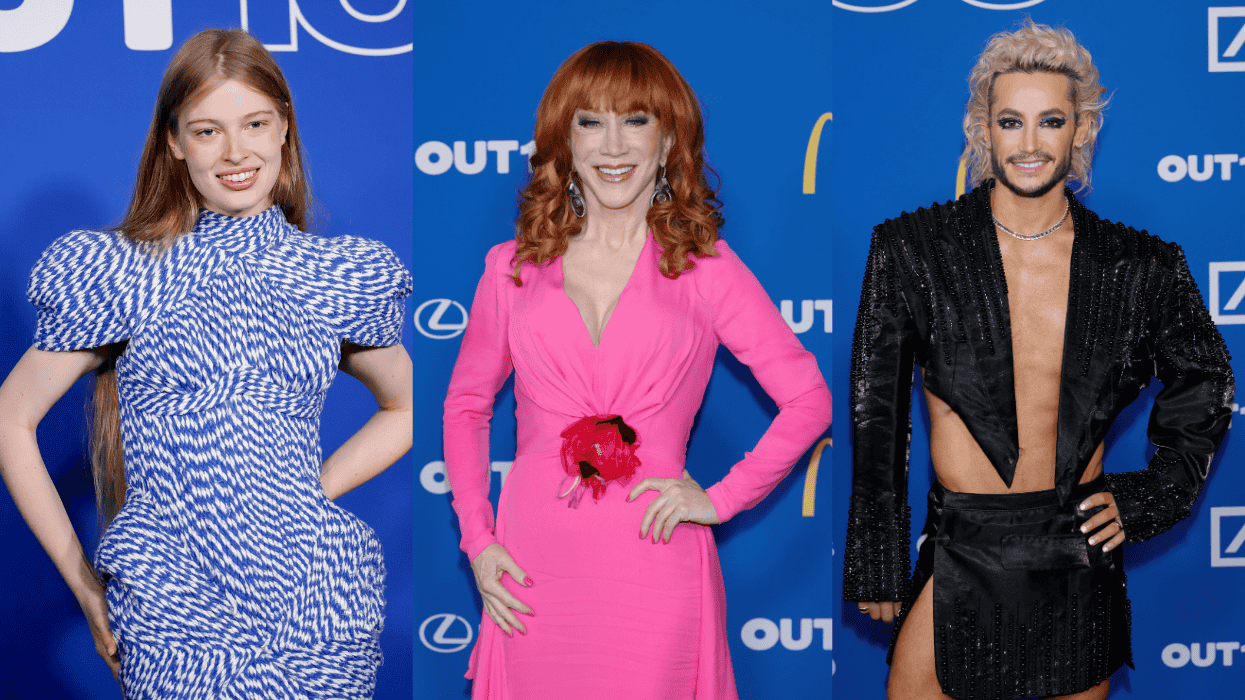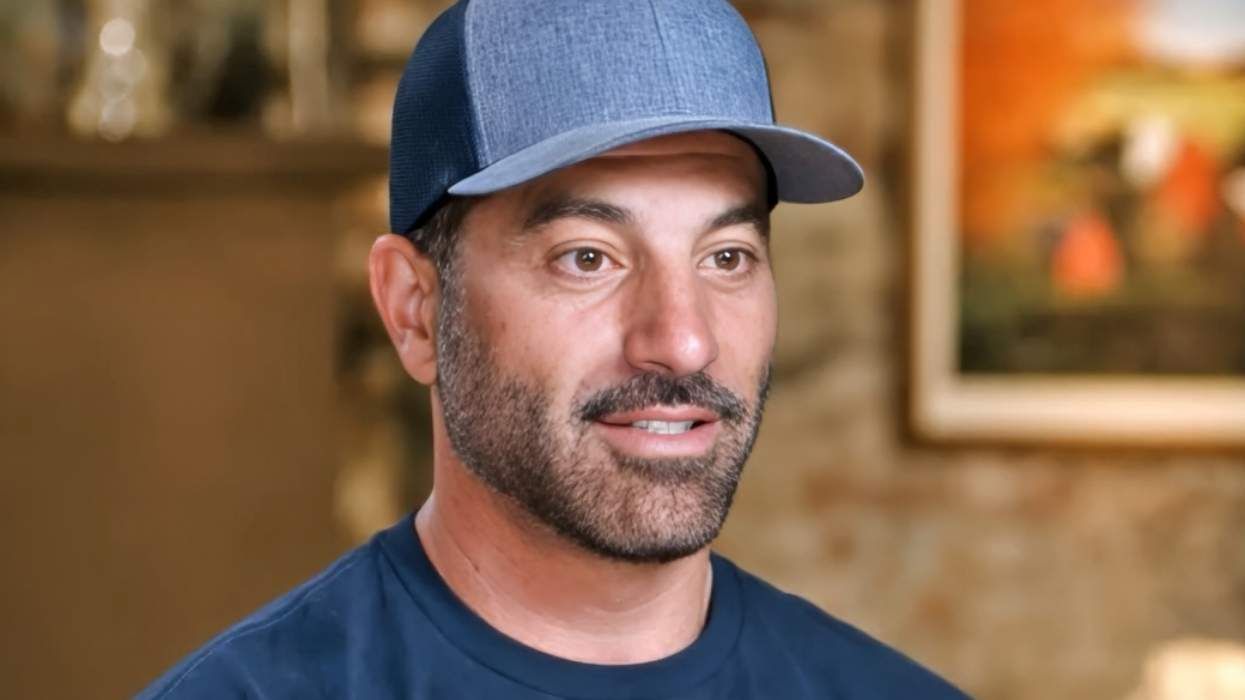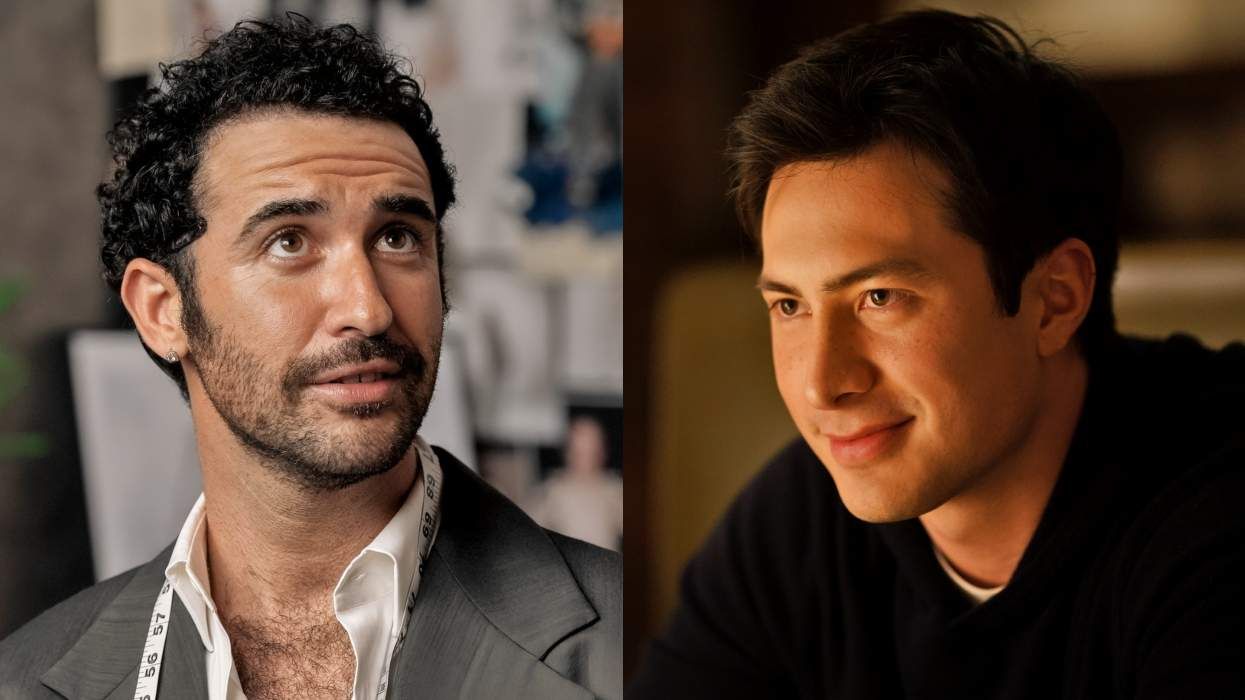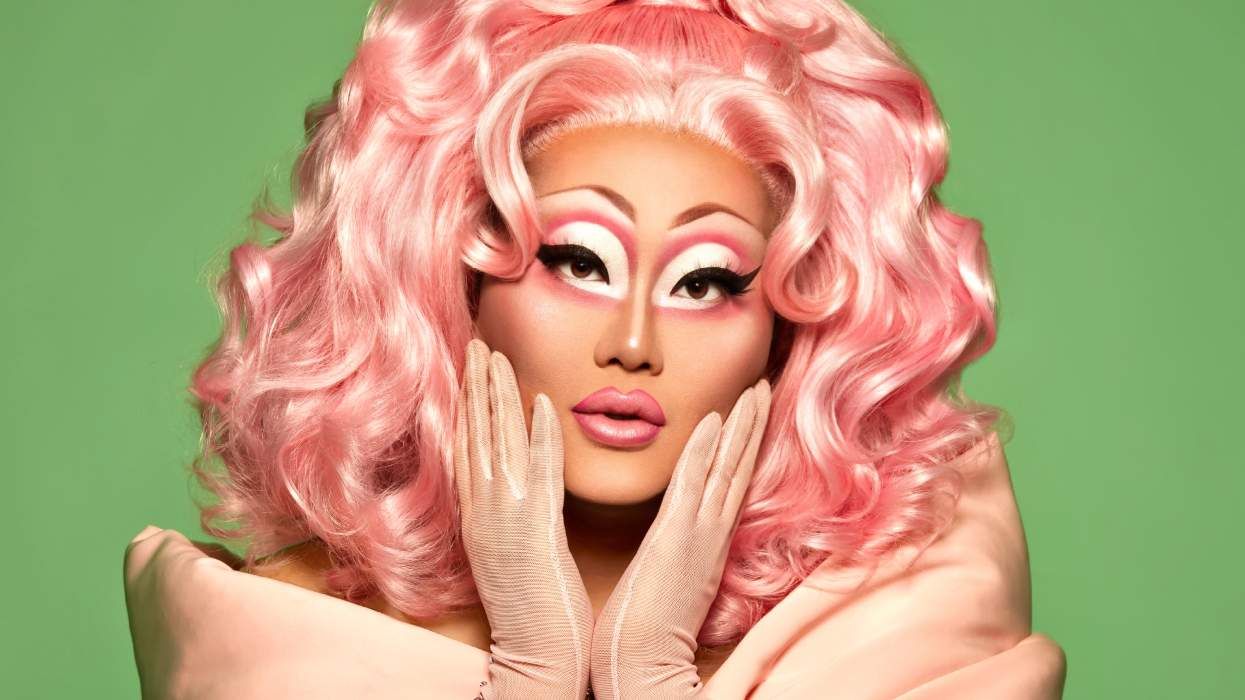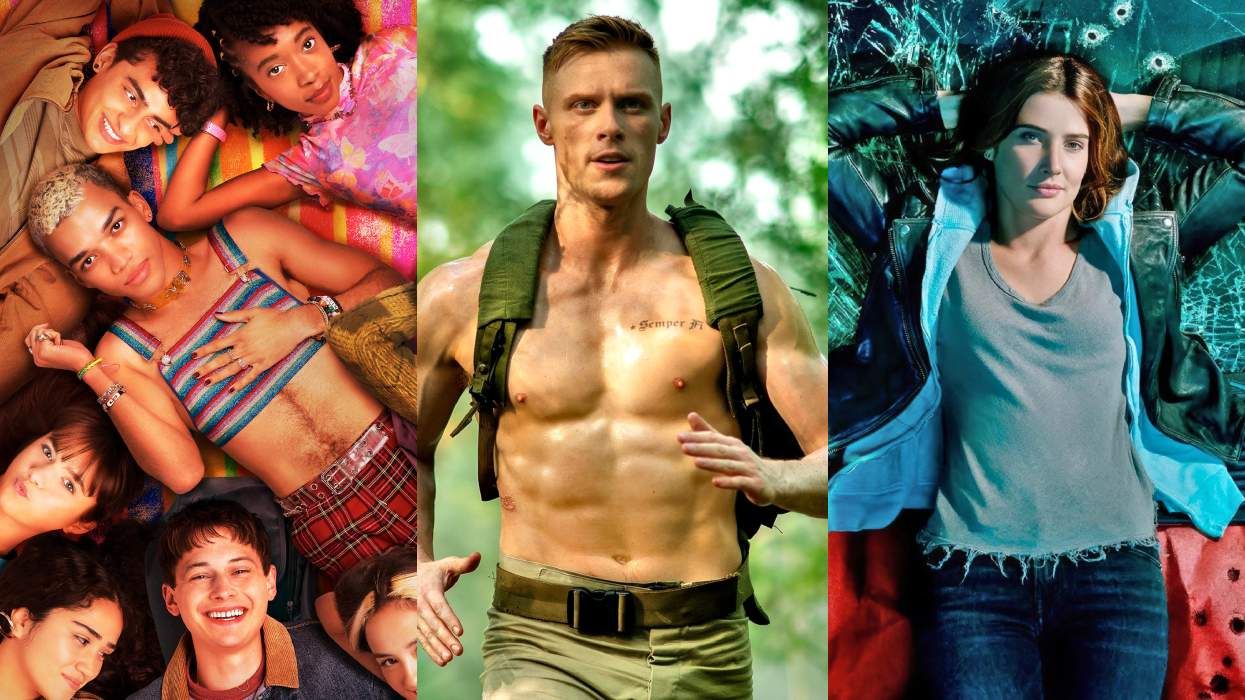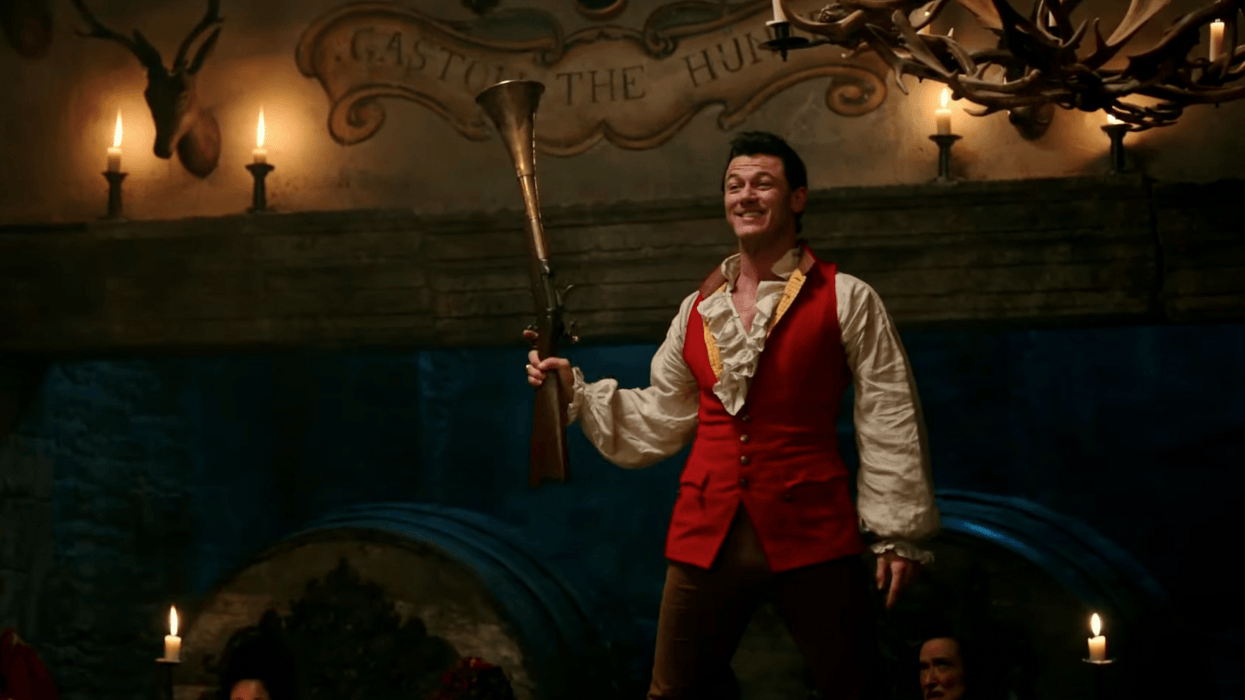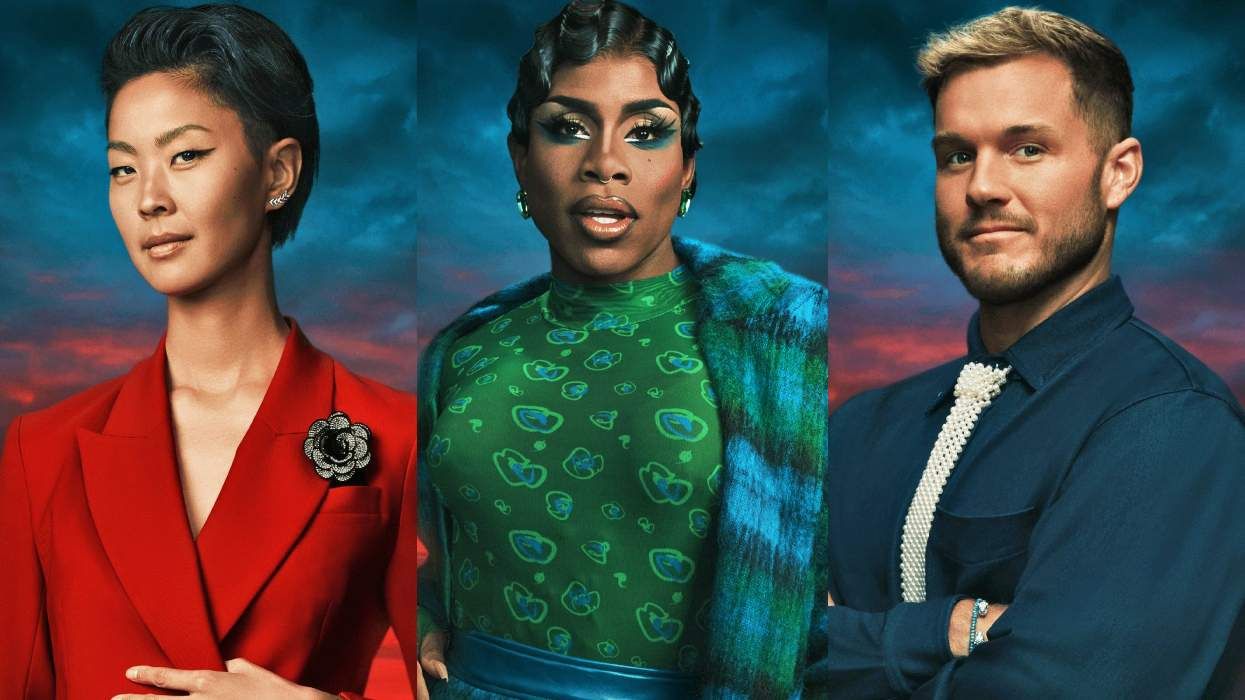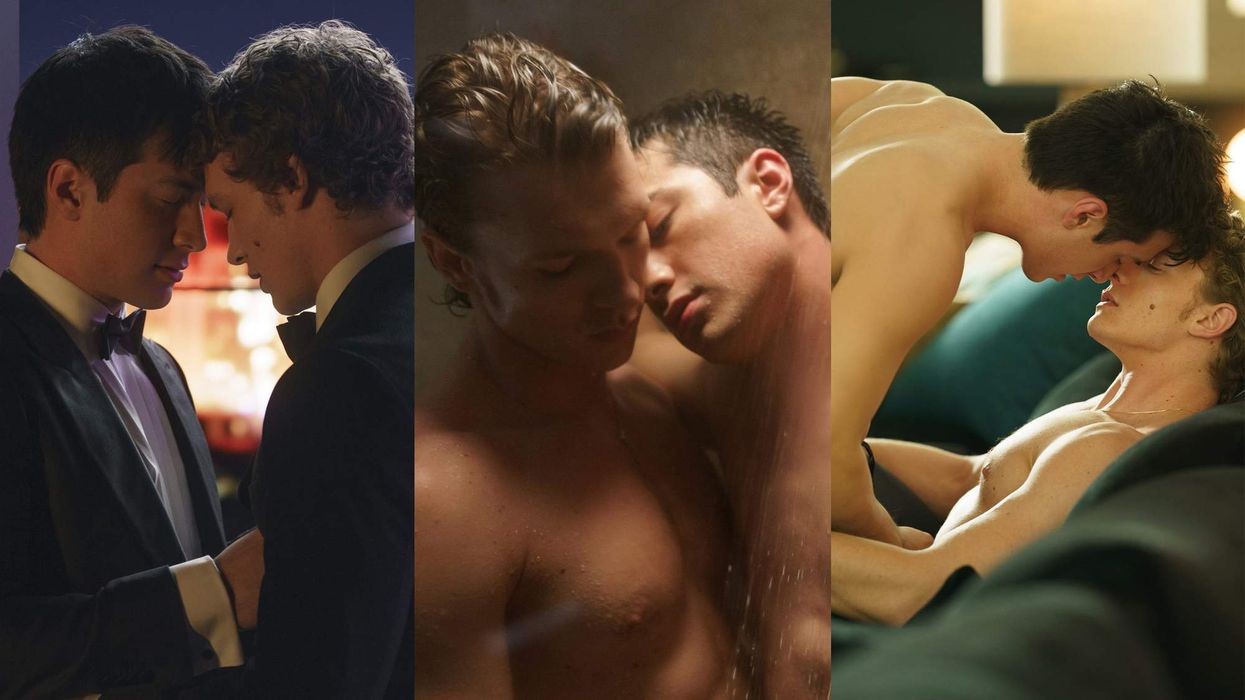Performance artist Gunnar Montana is bringing his new work KINK HAUS to La MaMa, the 2018 Tony Award winning theatre in the East Village of New York City. Previews begin September 20th and run through October 6th.
Described as featuring "a heady mix of music, dance, visual arts, lights, sounds, and a maverick attitude," KINK HAUS promises to depict the raw, dark, and sometimes outlandish sexual journey people travel. Set in an underground nightclub, the production reprises its critically acclaimed debut at last year's Philadelphia Fringe Arts Festival.
Before his New York stage debut, we had the oppprtunity to chat with Montana about sobriety, Fire Island, a night at Berghain, and the differences between New York City and Philadelphia.
Why did you base this show on queer nightlife?
It became autobiographical because my whole life was nightlife at one point. It's a big commentary on a lot of the drugs I did, a lot of the boys I slept with, where I was in my early 20s and reflecting back on it. It has a lot to do with how you fit into the bigger picture of the gay community and how I found myself. It's a cool little journey.
I find that this show has a satirical look on the gay community and some of our values. There's a monologue in it that calls out our obsession with body image, sex obsession, drinking, drugs, and how that's just the norm. I think right now, my goal in the community is to draw attention to that and to bring it to light. I like being ambassador for sobriety. That's been really awesome for me. I was just at Fire Island, and the Fire Island mentality. I was thinking about how much I've grown from that and how I want to express gay in my own way.
What has been your own experience with sobriety?
At first, it was really sad. There's a commentary in the show about it, as well, this whole idea of "dancing on your own" via the Robyn song. I felt really outcast from it at first, and still kind of do. I think our community evolves so much around drinking and so much around nightlife, that when you take drinking out of your life and you no longer participate in nightlife because of that main reason, it takes you out of the gay community automatically. So, I felt really estranged. Not to say that there isn't an entire gay community outside of drinking that's also sober, but it was interesting to have nightlife be such a big part of my life and then to make that switch in your life and to change that lifestyle, how you're automatically on the outside of what you grew up in.
So, it was this sad moment where I felt really good about myself and my choices, but very alone in them I used to be that guy and that party, party, party animal. I'm no longer so sexually driven. You can smell it in the air on Fire Island, this need to procreate. It's just not where I'm at anymore. And I respect the people that are there, but it's definitely something that I used to be a big part of my life that I have fallen from.
Why did you stop drinking?
I stopped drinking because I really wanted to focus on my craft and my work, and I felt it was getting in the way. I saw myself as an alcoholic at 40, so it was a preemptive strike. I just wanted to be able to make as much work with a clear head as possible, so that I could say what I needed to say and have enough energy to do that and enough time in the day where I wasn't hungover to do that, and didn't need to rely on any devices to do that for me. I used to think that drinking was a way to fuel creativity, and that I couldn't create without having a drink in my hand. I've learned that that's not the case.
Where did the inspiration for KINK HAUS first come from?
I went to Berlin seeking out this sense of self that I felt like Berghain captured. It's supposed to be this realm of where you can be yourself and anything goes. It's just a free world. So, I was really excited to go experience that in Berlin. I went to the front door, and I got turned away right off the bat. I guess I just didn't have the look. I learned that they have this door policy that is very pretentious in a way and doesn't let certain people in, and yada yada yada. With that disappointment, I turned that into a positive for myself, and just created what I thought I would see had I gone in there. That was the start of the snowballing from there. It just became a bigger and a bigger project.
It kind of ended up being this immense journey of self expression from that. I created this non-binary world where anything goes, and no fucks are given. It feels really free. It feels really welcoming in a very rollercoaster kind of way. And it tackles a lot about how I got to this point and what I was like when I was a kid. And just the trials and tribulation of getting at where I am today. And being that I'm so gay, it tackles a lot of those issues.
When you do your shows, you do everything, right? You do the costumes. You do the sets.
Yeah, I've been spending all day just building this club in their basement. I stared it last week, and I have 16 days to build it into something. I do all of the artwork. I just recently got a lighting designer and a set designer, but for the most part, what you see down there is my creation.
So you have this experience of mounting work in Philadelphia, and now you're doing work in New York. Is there a difference between the art and LGBTQ communities of the cities?
I think Philadelphia is an amazing place to work on your craft and to hone in on your craft and to develop it. And New York City is a great place to showcase because people want to see art. Philadelphians are more likely to go to a Phillies game than they are to opera. So, there's a totally different feel. In New York, you walk outside and there's this drive and desire, and you feel like people want to see you. So, that's really amazing.
The gay community is a lot different. Everybody seems a lot more distant here. Philadelphia's just so small and everybody is such a tight knit community, especially in the gay community. That has its ups and it definitely has its downs, but New York feel like you're in this massive sea of people and you just cross your fingers that somebody's gonna notice you.
What do you hope people take away from your show?
It's important for artists to express themselves openly and to live authentically because a lot of people have a very difficult time doing that, whether it's the jobs they take on or the life they take on. This is me creating to the fullest. And with that, you take away this idea that you can also live out to your fullest. Through expressing myself and exploring myself through this show, it gives people the opportunity to think that they can do that for themselves, too. I think people really see that and they really take that away.
For tickets to KINK HAUS, head here.


